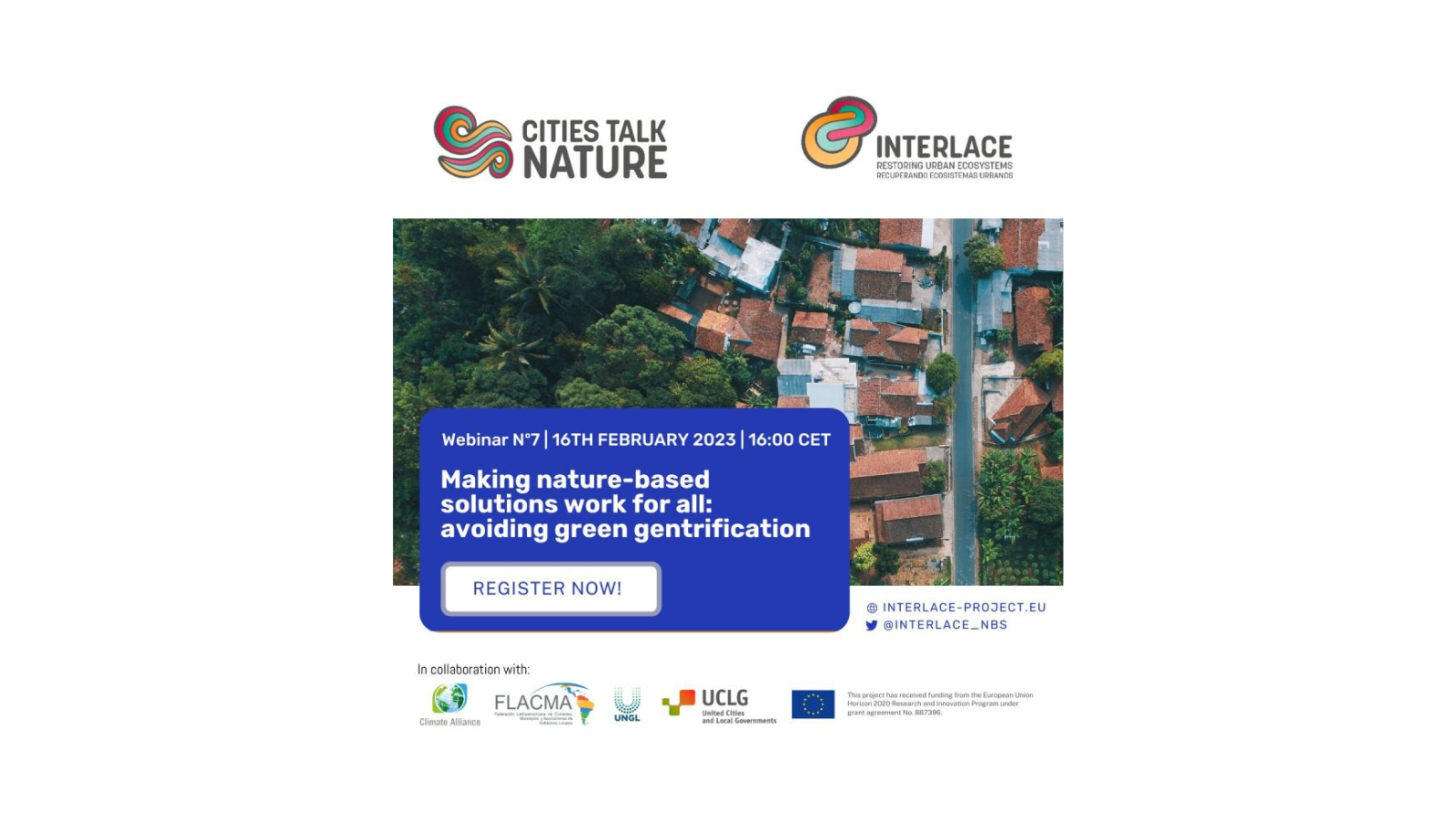
CITIES TALK NATURE WEBINAR: Making nature-based solutions work for all - avoiding green gentrification
In the seventh CITIES TALK NATURE webinar, taking place on 16 February between 16:00-17:30, discussions will build on the recently published GOLD VI Report on Pathways to Urban and Territorial Equality, developed by United Cities and Local Governments (UCLG) in partnership with the Knowledge in Action for Urban Equality (KNOW) research consortium.
The renaturing of a city should be of benefit to all residents, first and foremost to vulnerable neighbourhoods. Unfortunately, the opposite can be the case. There are more than a few examples in which greening projects contributed to the displacement of residents – through increased rents or inflated property taxes. Instead of benefiting, people had to leave their homes reinforcing spatial and social inequalities. These processes are known as “green gentrification”. They can happen intentionally but also unwantedly and despite the best planning intentions. One of the main drivers is often the private market-driven real estate sector. At the same time, cities tend to use greening projects for branding themselves as “green cities” – in order to attract tourists and investors. This in turn can again favour displacement processes.
How widespread is green gentrification and which different forms are existing? What can municipalities do to anticipate those developments and take action against them? How can local governments deal with private investors and what are the limitations of local actions? And how can local alliances between local governments and their communities prevent or revert green gentrification processes?
More information and register here
- 16/02/2023 - 16:00 - 16/02/2023 - 17:30
- This meeting will take place online
- Lucy Hammond
-
Working Group